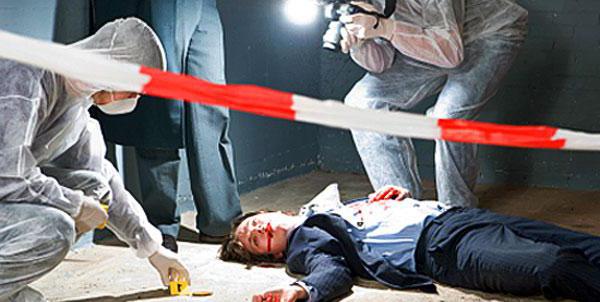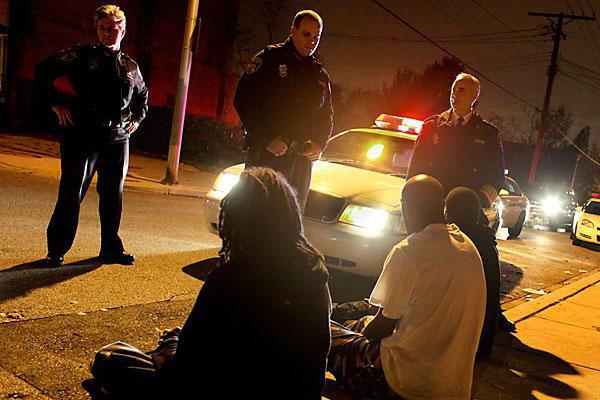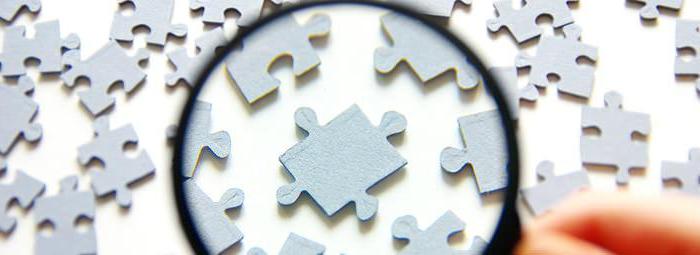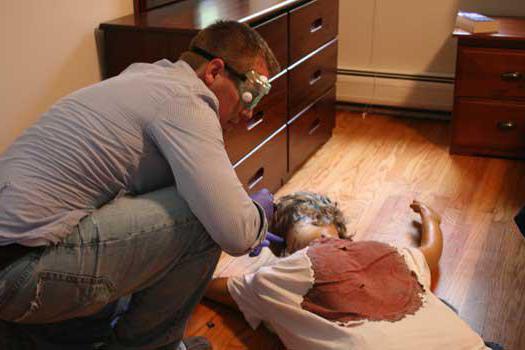In the production process, according to preliminary investigation, it often becomes necessary to organize verification of the objective possibility of a particular circumstance or phenomenon in specific conditions. For example, could a witness see or hear what is happening at the crime scene if he was in a particular area of the territory. Key concept, essence and purpose of the investigative experiment lies precisely in clarifying this kind of circumstances. It would be advisable to consider in detail the issue through this article.
The concept of an investigative experiment

Is it possible to enter the room where the crime of theft was committed, and through the ceiling break the transfer of stolen things? Is it possible to carry out the transport of goods indicated on the invoice by a vehicle of a certain brand in one flight? The concept, goals and types of investigative experiment fully able to clarify these issues and analyze individual practical situations.
So, today by an investigative experiment it is necessary to understand a specific investigative action, the content of which is to reproduce the situation being tested through experimental operations. They are carried out, first of all, in order to check the possibility or impossibility of the objective existence of certain circumstances that somehow come into contact with the case, under certain conditions. It is important to supplement what is regulated investigative experiment of the Code of Criminal Procedure. The basis of the proceedings in relation to the investigative experiment in the actual aspect is information indicating an urgent need for a plan of verification or clarification through the experimental path of a specific situation, actions or other circumstances of a certain event.
Classification of investigative experiments

As it turned out, goals and types of investigative experiment closely interconnected. Why? The fact is that the latter in one way or another depend on the key goal, as well as the features of the pilot operations. Thus, the following classification has been approved by relevant structures today in relation to the investigative experiment:
- The objectives of the investigative experiment are in an objective verification of the possibility of a certain phenomenon or fact under specific conditions. What can serve as an example? Nothing supernatural - just the ability to hear or see.
- An investigative experiment is carried out in order to checking the possibilities regarding the implementation of a specific action. It is important to add that specific conditions play an important role in this case. A vivid example of this item can serve as the possibility of applying a particular method in the process of penetrating into the room.
- Objectives of the production of the investigative experiment come down to checking the possibility of the actual occurrence of a certain event. What example can be taken? Short circuit in the power supply network - a similar case can easily be called the practical side of this point.
- The objectives of the investigative experiment are checking and analyzing the possibility of the existence of individual circumstances in the general aspect of the event being investigated. What is an example? A practical situation here can be the determination of the possibility of a particular quantity of marketable products to fit in a specific repository.
- The objectives of the investigative experiment are to verify and identifying the sequence in relation to the event that occurred.
- Often during the preliminary investigation, traces of a crime are discovered. How can this fact be associated with the classification in question? In this case The objectives of the investigative experiment are verification and analysis of the mechanism of formation of these traces. It turns out that everything is extremely simple!
Production conditions for the investigative experiment

After considering that goals and types of investigative experiment closely interconnected, it would be advisable to go to mechanisms to achieve the legality and validity of its implementation, as well as the reliability of relevant results. These include, in a general aspect, compliance with the necessary procedural and tactical conditions in the process of its production. Among tactical conditions, the key is to conduct an investigative experiment under circumstances that are as similar as possible to those under which the event under investigation occurred.
So, purpose of the investigative experiment, which consists in objective verification, involves the presence of a similar scene, situation and specific time of day. In addition, it is mandatory to achieve certain parameters of sound and meteorology. It is important to add that, whenever possible, employees in the relevant field involve the same individuals who directly participated in the event under investigation. The final condition is the same pace of experimental operations at which the event took place.
It is important to add that with the maximum similarity in relation to the studied situation objectives of the investigative experiment are achieved in the best way, and the result corresponds to the real situation and actions that were relevant in real time. It is also important that in the process of conducting an investigative experiment it is impossible to fully reproduce actual circumstances in order to avoid the commission of a second crime. In addition, their work is unacceptable if it degrades the honor and dignity of those participating in the event.
Additional terms

To basic objectives of the investigative experiment have been achieved, it is necessary to fulfill a number of conditions. In addition to the above, there are the following factors:
- In the process of an investigative experiment, several varieties of experimental operations are performed alternately in the corresponding sequence logic.
- Repeatedness in terms of conducting pilot events of the same species category. It is important to add that the repetition of those significantly reduces or eliminates the possibility of gaining a random result of the situation being tested.
- In order to objectives of the investigative experiment have been achieved, account must be taken in terms of conditions that have not yielded to reconstruction or have changed. It is interesting to add that they, as a rule, have a significant influence on the results of the experiment itself.
Stages of an Investigation Experiment

As it turned out, investigative experiment is carried out in order to verification and analysis of the perfect action. So, it is advisable to classify it in three stages. The first of them is preparatory, that is, directly preparing the event. It is important to note that in its structure there are two stages. The first of these is the stage of preparation for the investigative experiment before entering the territory where certain actions are planned. It is then that the investigator agrees to determine the following points:
- The time, purpose and place of the experiment, both in a general aspect and for each operation in a separate respect.
- The method, content and type of each of their experimental actions, as well as the sequence in terms of their implementation.
- The necessary conditions for the experiment.
- Participants of the event, as well as their responsibilities.
- Tools fixing an investigative experiment.
In order to objectives of the investigative experiment were fully achieved, the investigator needs to draw up a plan for its implementation. In addition, the activities listed in the next chapter should be implemented directly for implementation.
The implementation of the investigative experiment
In preparation for the investigative experiment, the investigator needs to organize a series of events:
- To prepare the objects necessary for the reconstruction of the situation in terms of the event that happened.
- Prepare objects that are necessary directly for the production of pilot operations.
- Provide preparation of fixing hardware.
- To ensure the presence of participants in the experiment at the venue at a time agreed in advance.
- Provide an event in terms of transport.
Preparing for the production of an investigative experiment

The preparatory stage in terms of the production of the investigative experiment immediately upon arrival in the territory of its conduct consists in the commission by the investigator of the following actions:
- Clarification of the participants of the event their rights and obligations.
- Preparation of the necessary situation of the analyzed event: clarification of current changes, reconstruction of the situation, as well as verification of compliance with the previously occurred conditions.
- Providing briefings to participants, as well as their direct placement at the place of experimental operations. In this case, it is the investigator who has the right to decide to what extent each of the participants in the event should be acquainted with the upcoming experimental actions and what responsibilities they have in the process of conducting the experiment.
- Warning participants in the event of responsibility for the disclosure of information of the investigative experiment. The witness and the victim are warned of responsibility in case of refusal or evasion of testimony or in the case of giving false information in accordance with article 307 of the Criminal Code of the Russian Federation.
Second phase
The second stage of the investigative experiment is called the worker and consists directly in the implementation of the event. The starting point of its implementation is to hear brief information from the mouth of the suspect, who takes part in the investigative action, as well as the victim, the accused and the witness. They need to be told about the circumstances that need to be verified through trial.
After that, the investigator offers the individual whose activity is being checked to assess the conformity of the situation that is relevant in real time for the commission of the crime. In the event of a statement of some discrepancy, the investigator agrees to bring the situation into proper shape. It is important to note that the experimental operations in the process of the investigative experiment are carried out exclusively in connection with the order of the investigator in the sequence provided for by the previously formed plan. The investigator needs to determine the sequence in relation to their repetition, as well as make certain adjustments in the process of the event. In addition, he should pay close attention to witnesses and other participants in the experiment directly to the process and the corresponding results.
Then, when the operation being verified was carried out by more than one person, the actions of each individual are subject to verification. However, other participants in the event should be absent. Their role, as a rule, is played by other people who are similar in terms of physical data.
The final stage

The key tool for fixing the event in question is the protocol. In its structure, it includes three parts: introductory, descriptive, and, of course, the final. Mandatory indication of the purpose of the investigative experiment is the main feature of the content of the introductory part.The narrative reflects the atmosphere of the event, as well as the description of the perfect reconstruction. In addition, it presents the location of absolutely all participants in the experiment immediately before the start of the experimental operations, an accurate and detailed description of each of the actions taken and the results obtained.
It is important to note that the final part of the protocol must contain an indication of all participants and data on their familiarization with it. In addition, they can make their own comments and statements. The protocol also indicates the list of schemes attached to it, photo tables, plans, audio cassettes and video materials, and so on.
By the way, photography, video recording, audio recording and plans and schemes corresponding to the experiment can serve as auxiliary tools. An audio recording is used, as a rule, when the purpose of an investigative experiment is to verify the ability to hear in a certain situation. It is important to add that the results of using additional tools (photo tables, diagrams, plans, video cassettes and audio materials) must be attached to the protocol of the event.
Assessment of the investigative experiment
Like any evidence in relation to a criminal case, an investigative experiment is somehow subject to assessment, which is formed in accordance with criteria such as admissibility, relevance and reliability. The latter is created on the basis of observance of the norms of criminal procedural nature, which regulate the order and causes of the experiment. Relativity is determined directly by the presence in the results of the event of information relevant in the plan of the case. Reliability assessment is carried out according to the internal conviction of the investigator in the same system with other evidence in relation to the crime. Thus, this kind of assessment includes the following activities:
- Verification in terms of the correct setting of the goals of the experiment, its sequence and, of course, the content.
- Checking the conformity of the circumstances of the event with those that were relevant in real time.
- Evaluation of tactics used during the investigative experiment.
- Comparing the results of an investigative experiment directly with other evidence in a criminal case.